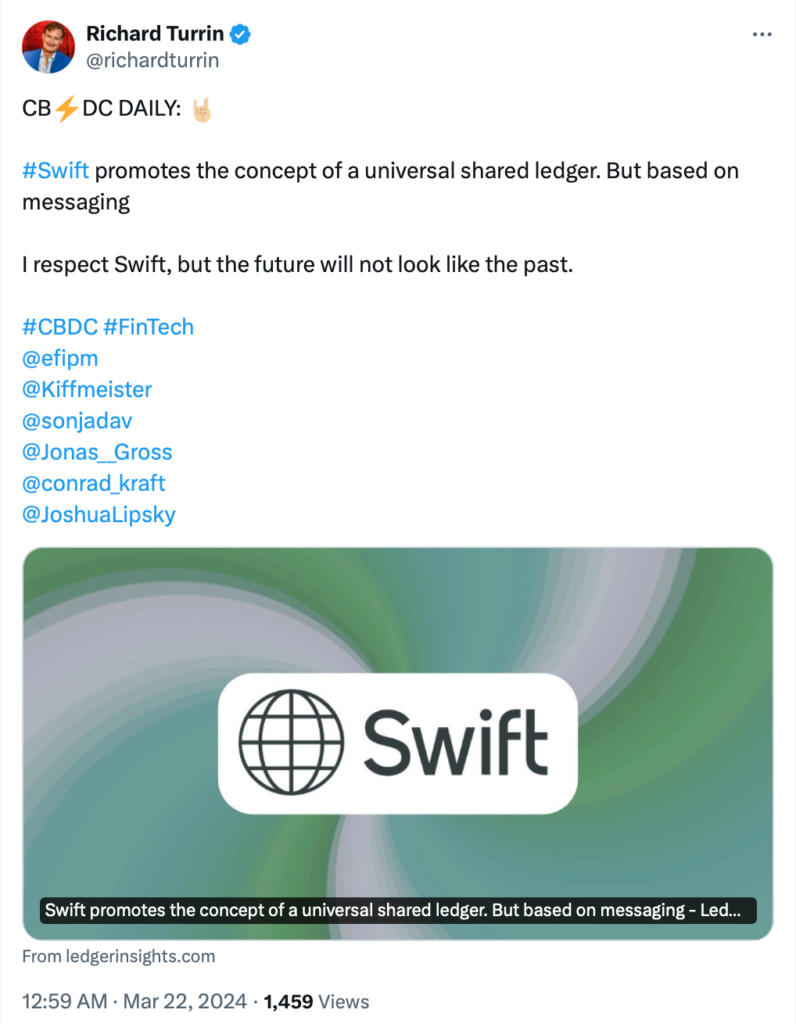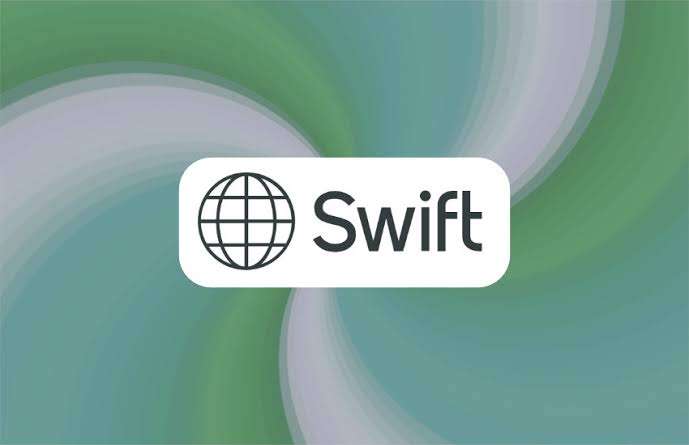SWIFT, is closely monitoring the advancements in fintech, particularly emphasizing its future and potential.
SWIFT, which stands for the Society for Worldwide Interbank Financial Telecommunication, has been keeping a close eye on the progression of fintech, with a particular emphasis on its future and prospects.
SWIFT Backs Unified Ledger Payment Model
One of the most critical components of the existing international payments system has thrown its support behind a unified ledger payment model.
This comes after several projects that have utilized new technology. An article on SWIFT’s website revealed the organization’s explicit focus on tokenization and the shared ledger paradigm.
The revealed information suggests that a shared infrastructure can provide real-time balance to all participants in the shared ledger. However, this does not mean that messaging is not required; SWIFT was quick to incorporate it.
“Shared ledgers are not well suited to carrying and storing high volumes of data due to the way data is synchronised across parties and the computing power required. This is where a messaging layer fits in.”
The report said that to make transactions as smooth as possible, it is necessary to send new types of data to provide value-added services such as anti-money laundering, compliance, sanctions screening, trade and accounts receivable reconciliation.
SWIFT proposed the development of a state machine, a dynamic model that reflects the current state of transactions and balances across institutions, instead of starting the production of a unified ledger from the ground up.
We could construct this state machine on top of the existing ISO-20022 messaging technology. There is the possibility that it might operate on a blockchain or a centralized platform such as the Transaction Manager of SWIFT.

The International Monetary Fund (IMF) has included the technology of unified ledgers into its XC platform and financial institutions that are an integral part of the Regulated Liability Network have also used this technology.
In addition, the Bank for International Settlements has approved the prototype. Established in 1973, SWIFT considered several alternatives before settling on the unified ledger concept.
In 2022, it collaborated with the financial technology company Symbiont on a trial project to improve the distribution of information to corporate clients by utilizing the blockchain-driven Assembly platform that Symbiont had been developing.
Research that was published in 2023 argued against the utilization of a unified ledger and instead advocated for the usage of SWIFT as a “single point of access” to several blockchain networks.
SWIFT significantly aids the implementation of economic sanctions worldwide. At the commencement of the Russian invasion of Ukraine in February 2022, the European Commission issued an order that removed an unknown number of Russian banks from the SWIFT network.












